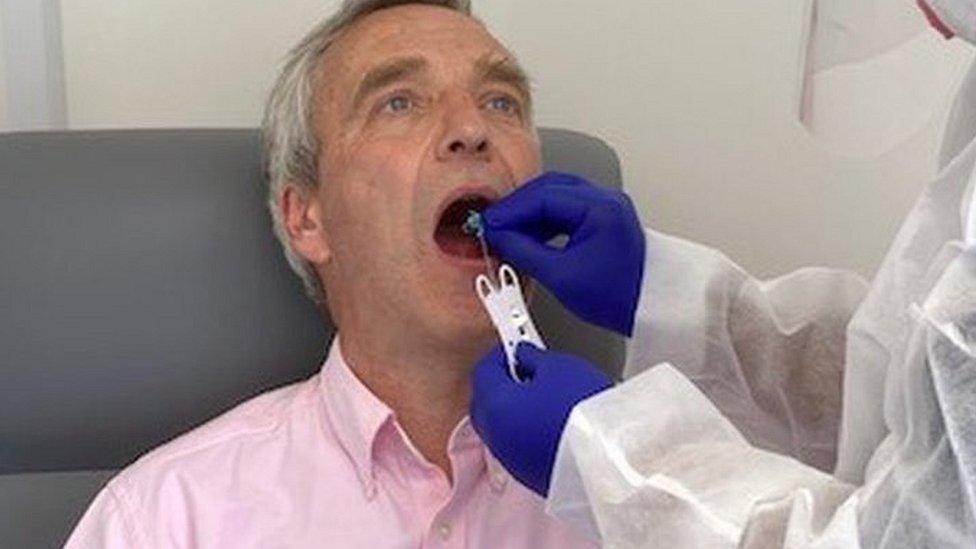Oesophageal cancer 10-minute sponge trial starts
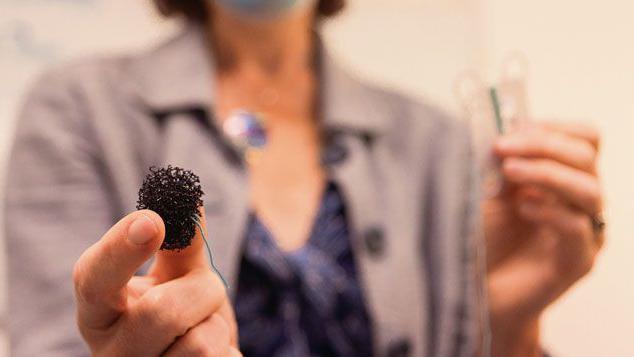
The sponge is a "remarkable innovation by Prof Rebecca Fitzgerald [above] and her team", according to Michelle Mitchell, chief executive of Cancer Research UK
- Published
People who regularly take medication for heartburn will be invited to join the final stage of an oesophageal cancer screening trial using a 10-minute sponge test.
Patients will be asked to swallow a dissolvable pill on a string, which releases a sponge the size of a 50p coin to collect cells from the oesophagus as it is retrieved. If successful, it could become part of the UK NHS cancer screening programme.
Prof Rebecca Fitzgerald, from the University of Cambridge, said: "Catching [cancer] earlier can save lives by reducing the need for chemotherapy and surgery to remove the oesophagus."
The £6.4m project, which hopes to recruit 120,000 people, is jointly funded by Cancer Research UK and the National Institute for Health and Care Research.
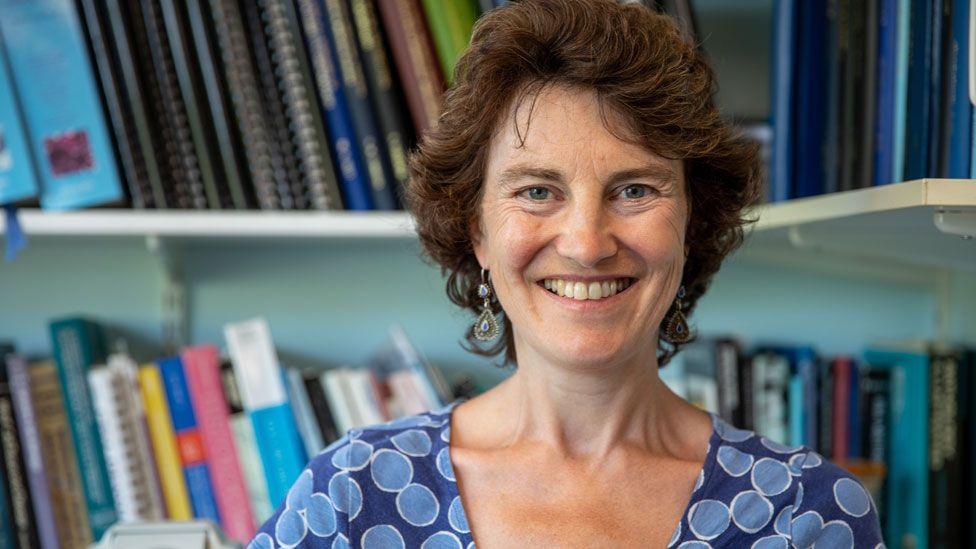
It follows decades of research by the professor and a team of scientists, clinicians and nurses who invented and refined the capsule sponge test
Oesophageal cancer is found anywhere in the oesophagus, sometimes called the gullet or food pipe, external.
The capsule sponge, known as the pill-on-a-thread, is a quick and simple test for Barrett's oesophagus, a condition that can be a precursor to cancer.
The sponge is swallowed, its coating dissolves when it reaches the stomach and it is then carefully pulled back up using the string, collecting cells for laboratory testing.
Paul Anderson, 59, a stock controller from St Neots, Cambridgeshire, was one of the trial's first participants.
He hoped it will "give me some more insight into my chronic heartburn, as well as helping people who may have similar concerns about their health".
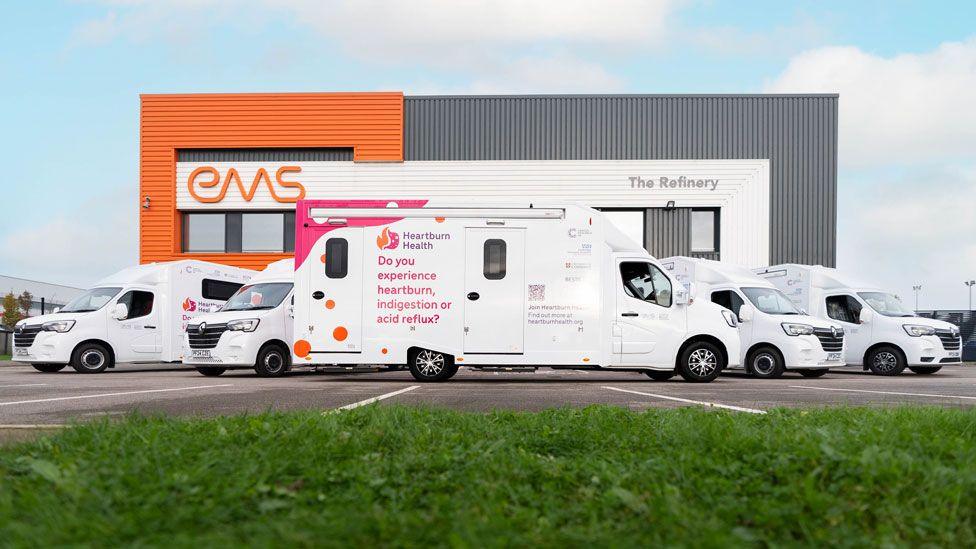
Mobile screening vans will be rolled out across England to deliver the tests, which will take a nurse 10 minutes
Prof Fitzgerald, director of the university's Early Cancer Institute, said the method is "changing how we detect Barrett's oesophagus and oesophageal cancer".
It was hoped the test could save lives and reduce the need for "labour-intensive" endoscopy - a camera down the throat - which is currently the "gold standard" to diagnose and treat this type of cancer, according to Cancer Research UK.
It said there were about 9,300 new cases of oesophageal cancer in the UK every year, making it the seventh most common cause of cancer death in the country.
The BEST4 Screening trial is open to men over 55 and women over 65 who were already taking medication for chronic heartburn, with invitations to be sent by text message from the NHS.
The research is led by Cambridge University Hospitals NHS Foundation Trust and the University of Cambridge.
Get in touch
Do you have a story suggestion for Cambridgeshire?
Follow Cambridgeshire news on BBC Sounds, Facebook, external, Instagram, external and X, external.
- Published9 January 2024

- Published21 September 2022
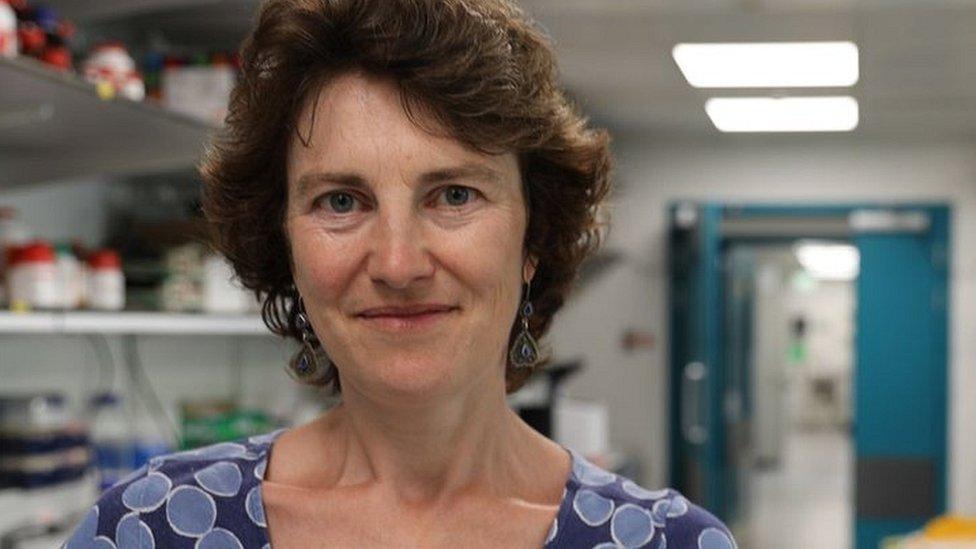
- Published9 June 2021
